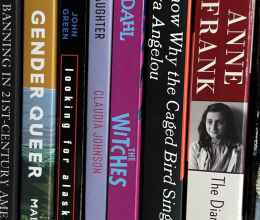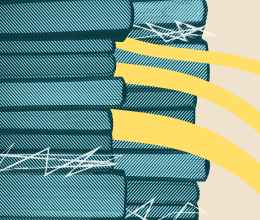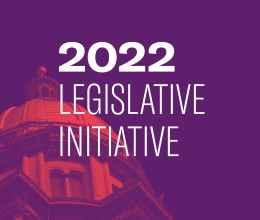
Courts need to balance and reconcile two competing and equally important legal rights when determining whether public high schools can limit student speech that disparages other people on the basis of race, religion, sexual orientation and similar protected statuses, according to a legal brief filed by the American Civil Liberties Union of Illinois in a case now on appeal in Chicago. The organization's position is presented in an amicus curiae brief filed in the Seventh Circuit Court of Appeals in Chicago in Nuxoll, et.al. v. Indian Prairie School District #204. The case grows from a challenge by a Naperville, Illinois high school student who was prevented from wearing a t-shirt with the message "Be happy, not gay" in her public school the day after other students were participating in the "Day of Silence," an event designed to promote tolerance of LGBT youth.
The ACLU's brief details the two fundamental rights implicated by the case: first, the fundamental right for public high schools students to exercise their right to free speech, including the in-school expression of controversial and offensive messages; and second, a fundamental right to freedom from discrimination on the basis of protected status, including race, ethnicity, nationality, religion, sex, gender identity, sexual orientation and disability status. The ACLU's brief suggests a path for the Court to fully protect these two fundamental freedoms.
"The court in this case must weigh carefully these two fundamental interests in our public schools, with neither right having automatic primacy" said Adam Schwartz, Senior Staff Counsel for the ACLU of Illinois. "Ensuring the free exchange of ideas - even controversial ideas - while protecting students against undue harassment fosters an environment where students are best able to learn, explore new ideas and mature."
According to the brief, courts should view these controversies through the standard set forth in the landmark school speech case, Tinker v. Des Moines, decided by the Supreme Court of the United States in 1969. Based on that decision, public high school officials cannot censor speech unless they can "reasonably . . . forecast" that disputed speech will cause a "substantial disruption" of school activities or impinge on the "rights of other students."
Unfortunately, the public high school in this case argues that schools can suppress student speech whenever such speech conflicts with the school's basic educational mission - a standard that improperly would allow censorship of most student free speech. Pointing out the importance of protecting student speech that is not disruptive or invasive of the rights of others, the ACLU brief notes recent court decisions that struck down efforts by high schools to limit the rights of students to form clubs supporting tolerance of gay and lesbian students.
The ACLU brief also argues that in deciding whether derogatory student speech can be censored because it invades "the rights of others," schools and courts should examine whether the speech comprises "harassment," as that term has been defined in decades of anti-discrimination case law. Specifically, in-school expression by a public high school student is unprotected harassment only when it is reasonably forecast by school officials to be severe or pervasive enough to (i) significantly hinder a reasonable student in obtaining an education because of his or her protected identity category, or (ii) significantly harm a reasonable student's physical, mental, or emotional well-being because of his or her protected identity category. Application of this standard is fact-intensive. Under this test, some derogatory messages will be protected speech, and others will be unprotected harassment.
The ACLU brief concludes by applying this standard to the facts of this case. First, the school's speech policy is unlawful on its face, because it broadly prohibits all speech that disparages protected classes, rather than carefully distinguishing protected speech from unprotected harassment. Second, the school last spring should have allowed two students on one day to wear the "be happy, not gay" t-shirts. Third, the plaintiff's plans for future speech are vague, so the appellate court should remand the case for further development of a factual record, which will allow a meaningful evaluation of the plans under the proper legal test.
"There are a number of cases similar to this one working through courts throughout the nation," added Schwartz. "We hope that the Court in this matter will help set a standard for analyzing these challenges that can give guidance to students and school officials."



